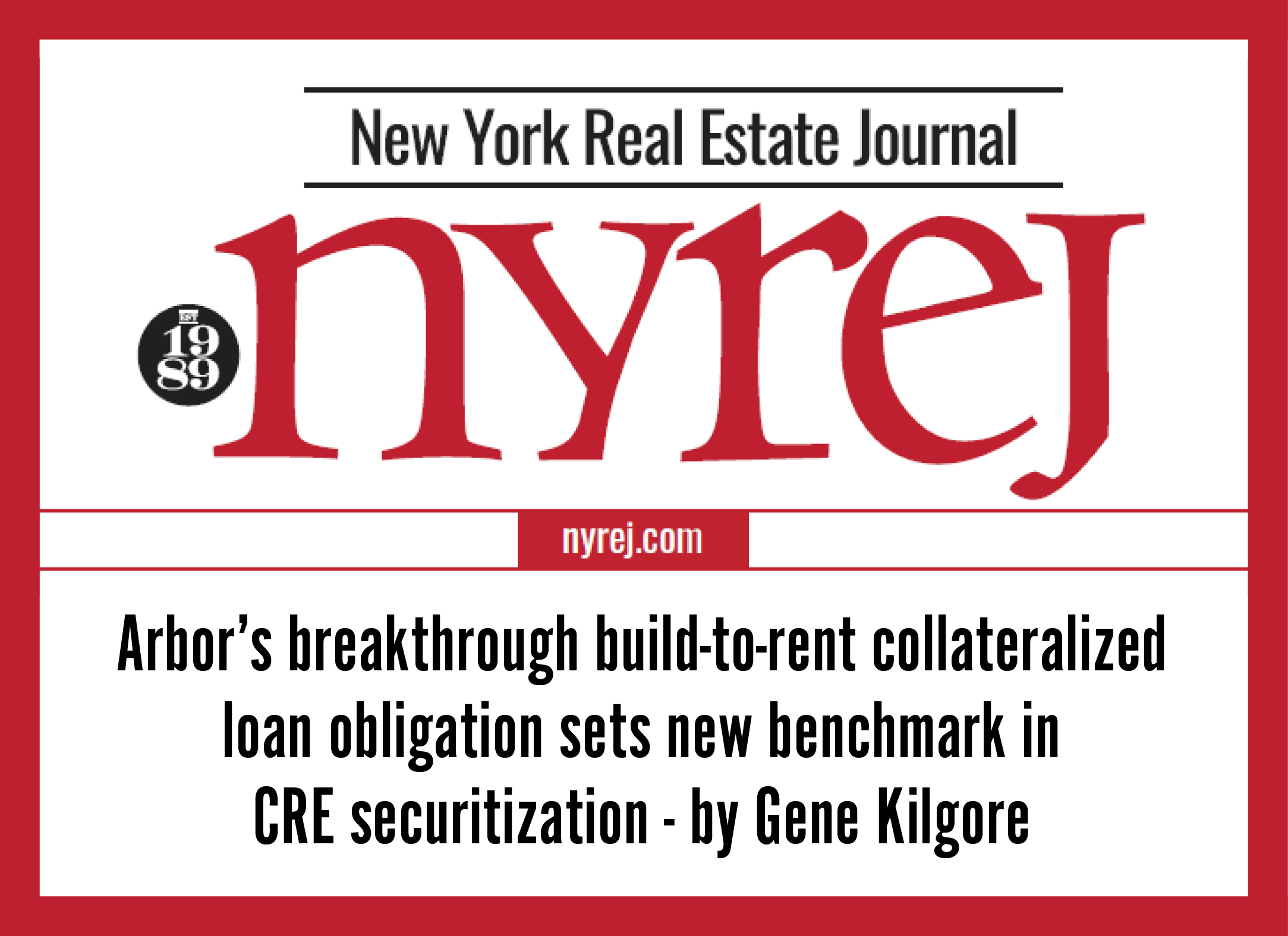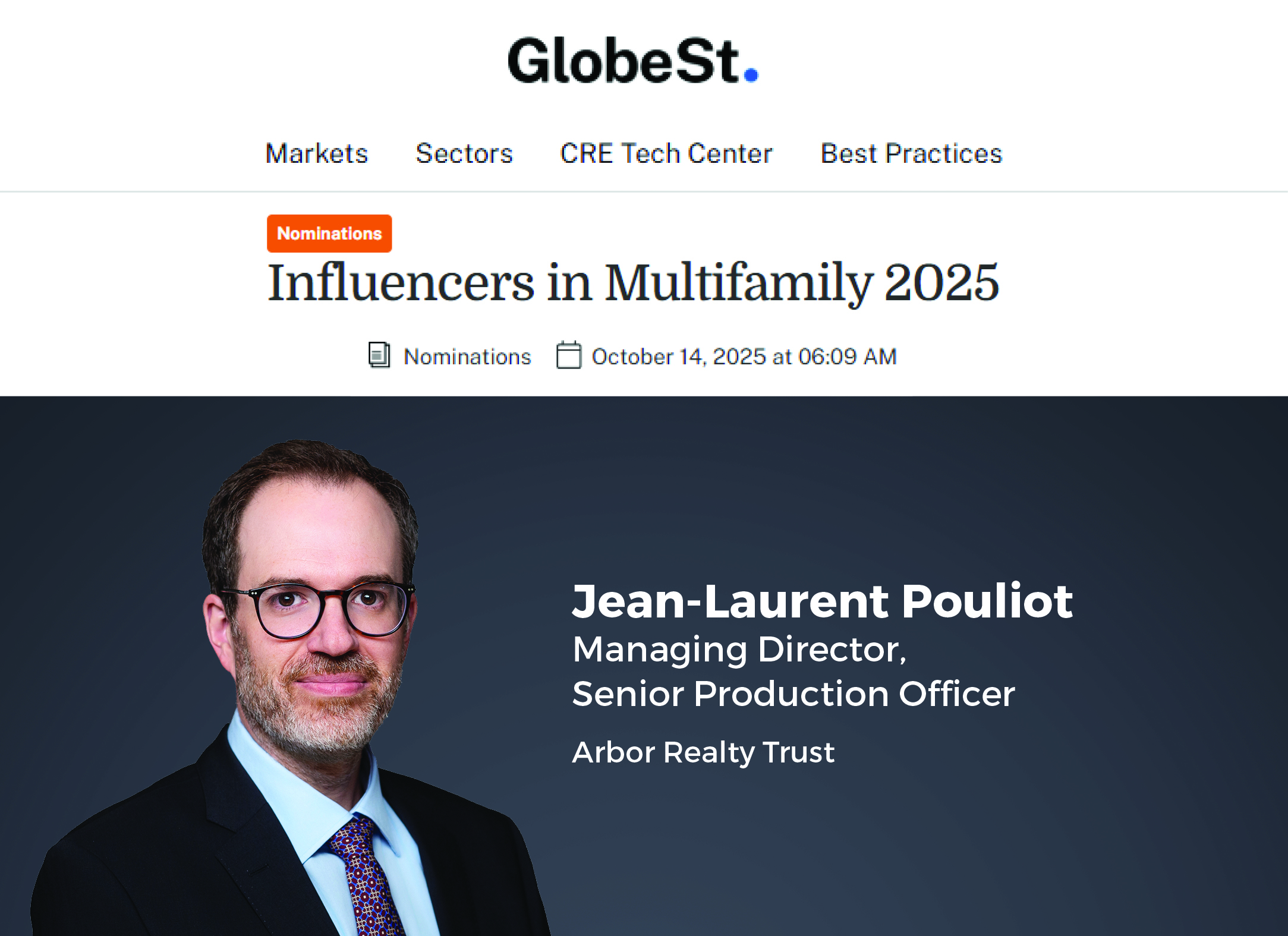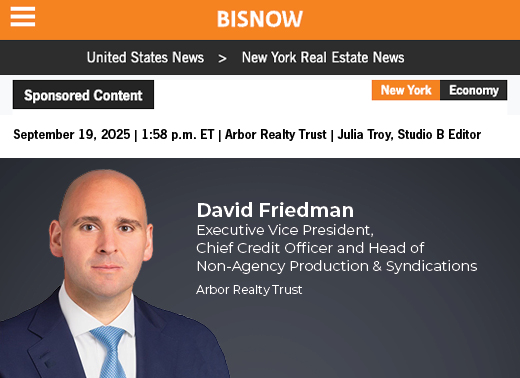Ivan Kaufman Talks 2021 Housing Demand on Yahoo! Finance Live

Arbor Realty Trust’s CEO discusses the company’s strong first-quarter earnings and his outlook for housing demand this year
Arbor has had an “unbelievable run,” with the first quarter of 2021 marking the 10th year in a row that the mortgage REIT has raised their dividend, noted Ivan Kaufman, founder, chairman and CEO of Arbor Realty Trust, Inc. (NYSE: ABR) in an interview on Yahoo! Finance Live with Adam Shapiro and Seana Smith. Much of Arbor’s success can be attributed to its focus on resilient asset classes like multifamily and single-family rental (SFR), he noted.
“We’re just in a great space. We’re a multifamily lender. We’re very active in the single-family rental space. Those segments of the economy are just ripping and roaring, fueled by low interest rates, an imbalance of supply and demand, and an attractive investment class. We’re just in the right place at the right time,” Kaufman said.
In the interview, Kaufman discussed why single-family rentals have become so appealing. While the market has largely been dominated by mom-and-pop investors, institutional players have slowly been entering the space since the Great Recession.
“With institutional capital coming and professional management coming to the space, it’s just becoming more and more attractive,” he said.
The pandemic has only accelerated demand for SFR product, as households began to move out of urban areas in search of more space and affordable prices in the near suburbs. As home prices have jumped in the last year, those priced out of the market are looking to rent homes as an alternative.
On the multifamily side, Kaufman noted that there is still a lot of demand and new developments are being leased up, albeit at a slower pace.
Kaufman also shared his outlook for housing demand in 2021, noting that home prices will likely only continue to go up due to the persistent imbalance of supply and demand.
“You’re going to see too many people looking to buy homes, not enough homes for sale. You’ll still see some level of appreciation,” he said, adding that if interest rates remain low, people will lean toward buying a home.
Labor market shortages and high lumber prices are also delaying construction of new homes. “You’re going to see a little bit of a slow move on new homes coming to market,” Kaufman noted.
Watch the full interview here.





